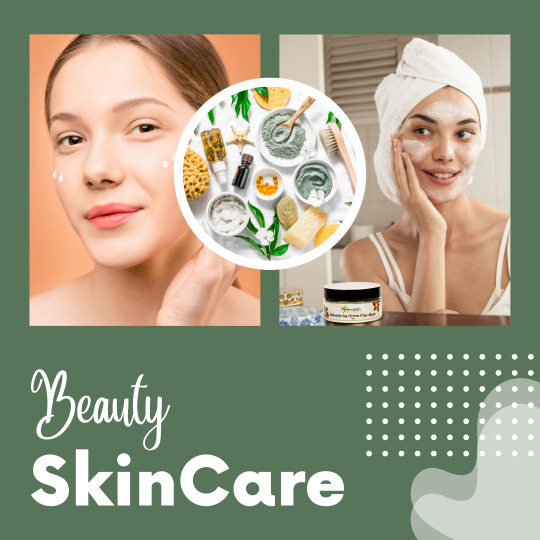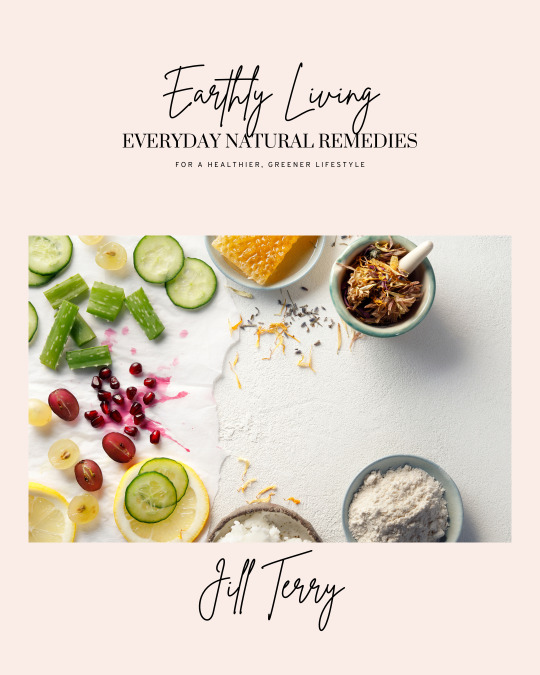#diy skincare
Text
•°•Hot Girl Tips•°•
Hydrogen peroxide removes period stains
Rubbing alcohol and/or hand sanitizer removes nail polish
The amount of water you need to drink= your weight÷2, then that number÷8 so for example 100÷2=50÷8=6.25 so if you weigh 100 pounds you would need at least six 8oz glasses of water per day
Sugar wax>>> here's a recipe: 1 cup of white sugar, 1/4 cup of water, 1/4 cup of lemon juice (lime works too) combine the ingredients in a saucepan and let them boil until golden brown. The easiest way to test the wax is to have a small bowl of ice water and drop a little bit of the wax into it. When the wax is ready, you'll be able to roll it into a soft ball and it will keep its shape. When this consistency is reached, put it in a glass jar (make sure the jar isn't cold otherwise it will crack) and let it cool off for at least an hour. Once cool, apply it in the opposite direction of hair growth and wax awayyyy
Diy cuticle oil: olive oil and vitamin E oil. You could add a drop or two of essential oil if you want. The amount of oil you need depends on your container so for mine it was a tablespoon of olive oil and 1 teaspoon of vitamin E.
Diy dry shampoo: 3 parts cornstarch and 1 part baking soda.
Healthy drink to ease bloating and get in your vitamins and minerals: 1/2 cucumber, a few sticks of celery, kale or another dark green of your choice, lemon juice, turmeric (a little goes a long way) and ginger. Fresh is best but any ginger you have will work. Fill the blender to the max line with water, and blend until liquid. You can strain it if you want, but you don't have to. It doesn't taste great, but in the long run it is worth ittt
Smelling good is such a wonderful thing for so many reasons. First, pick a scent. Or at the very least a top 3 like I have: vanilla, Dior Blooming Bouquet, and Sol De Janeiro '68. I also use the classic scent from Soap and Glory (rose and bergamot). The first and most important thing is to find a good deodorant. Which one works for you depends on your body chemistry, but dove is always a safe bet :). Next, find a good shower routine. Having all of your shower products smell similar will keep the scent lasting longer. And, of course, shower at least every other day. Washing your hair is different bc your hair washing routine depends on your hair type. And of course you must find a body lotion that matches your other shower products.
Last and final tip for today: keep your nails and hands healthy and pretty by moisturizing your hands with hand cream. I like this one by Burts bees, this one from Eucerin, and this one from Dior (pricey I know but it's w o r t h itt).
That's it! Tysm
#coquette#dollette#pink aesthetic#pinterest#princess#dior beauty#skincare#skincare tips#self care#pink#girl tips#hot girl tips#clean girl#skincare advice#dior#healthy skin#nail care#hair care#diy#diy skincare#diy nails#diy nail care
390 notes
·
View notes
Text
Step 1: run bath (hot!!)
Step 2: shave and scrub every inch with granulated sugar, dried rose petals and rose oil (smell good!)
Step three: smear self with more rose-scented butters and oils (slippery!)
Step 4: try (and fail) not to touch yourself for the next three hours because your knees, elbows, hands, face and heels feel like a newborn baby's butt (nice!)
#writeblr#writers on tumblr#self care#self love#smooth body#i smell good#roses#sugar scrub#smell nice#bubble bath#diy skincare
7 notes
·
View notes
Text
In the pre-launch stage of a small skincare line! Follow my blog, socials, and website to stay up to date on the launch, watch behind the scenes, and show support!
#handmade#small business#entrepreneur#skincare#launchingsoon#diy skincare#support#diy#crafts#face cleanser#body#body wash#sugar scrub#blog#blogger#business
3 notes
·
View notes
Text
How and When to Use Vitamin C in Skincare Routine Correctly with 8 Bonus Tips

When to Use Vitamin C in Skincare Routine? Are you a morning skincare enthusiast or a night owl when it comes to your beauty regimen? When it comes to Vitamin C, the timing could make all the difference in your quest for a radiant complexion. Let’s explore the secrets of when and how to unleash the full potential of Vitamin C in your skincare routine!
In the ever-evolving world of skincare, one ingredient has consistently captured the attention of beauty enthusiasts and dermatologists alike: Vitamin C. With its proven benefits for the skin, Vitamin C has become a staple in countless skincare routines.
However, the question remains: when is the best time to incorporate this powerful antioxidant into your daily regimen? In this comprehensive guide, we will explore the nuances of using Vitamin C in your skincare routine, shedding light on when, how, and why you should make this ingredient a part of your daily beauty ritual.
Whether you’re a skincare novice or a seasoned expert, join us on a journey to uncover the secrets of effective Vitamin C usage and unveil a brighter, healthier complexion.
What to Know About Vitamin C?
Vitamin C, also known as ascorbic acid, is a water-soluble vitamin found in various foods and is renowned for its essential role in maintaining good health.
It’s not only a vital nutrient for the body’s overall well-being but also plays a crucial role in skincare. Here’s a closer look at Vitamin C:
Chemical Composition: Vitamin C is a water-soluble vitamin with the chemical formula C6H8O6. It is a white, crystalline compound that is naturally found in some fruits and vegetables.
Antioxidant Properties: Vitamin C is a powerful antioxidant, which means it helps protect cells from damage caused by free radicals. Free radicals are unstable molecules that can damage collagen, DNA, and other important structures in the skin, leading to premature aging and other skin issues.
Collagen Production: Vitamin C is essential for the synthesis of collagen, a protein that helps maintain the structure, elasticity, and firmness of the skin. Collagen production tends to decrease with age, and Vitamin C can help support collagen production, leading to smoother and more youthful-looking skin.
Skin Brightening: Vitamin C can help brighten the skin by inhibiting the production of melanin, the pigment responsible for skin color. This can be particularly beneficial for those with hyperpigmentation, dark spots, or an uneven skin tone.
Wound Healing: Vitamin C plays a role in wound healing and can aid in reducing the appearance of scars and promoting overall skin repair.
UV Protection: While not a replacement for sunscreen, Vitamin C has some mild photoprotective properties. It can help neutralize the damaging effects of ultraviolet (UV) rays to a certain extent.
Immune System Support: Beyond skincare, Vitamin C is essential for a healthy immune system and can help the body fight off infections.
For More Information, Click Here: When To Use Vitamin C in Skincare Routine
#skincare#theskinpanda#skincare routine#skincare tips#acne#dark skin#skin tightening#diy skincare#vitamin c#vitamin c benefits#vitamin c face wash#vitamin c serum#glowingskin#skincareroutine#skin brightening#wound healing
3 notes
·
View notes
Text
How To Glow Up In One Week | Glow Up Checklist, Glow Up Challenge
How To Glow Up In One Week | Glow Up Checklist, Glow Up Challenge
100 Beauty Recipes for Hair, Face and Body – My DIY Beauty Book Vol. I!
Hey, pretty people!
Here I am once again with a new glow up guide! I have missed doing this type of content, and as soon as I felt inspired I had to go back to it.
I have posted a total of 4 glow up checklists on my blog (which will all be linked at the very end of this article), but somehow I felt like I could…

View On WordPress
#beauty#cheap#cosmetics#diy#diy beauty#diy blend#diy face mask#diy haircare#diy mask#diy skincare#do it yourself#drugstore#dupe#dupe alert#fashion#glow up#glow up at home#glow up challenge#glow up guide#glow up guides#glow up in 1 week#glow up in a week#glow up in one week#glow up tips#guide#hacks#haircare#home remedies#homemade#how to glow up
17 notes
·
View notes
Video
youtube
Get Clear Skin in 7 Days! 5 Homemade Face Packs for ACNE-PRONE Skin You ...
1 note
·
View note
Text
Summer sun making me rose water for hydrating cuticle oil!

#crafts#diy#home & lifestyle#handmade#diy beauty#beauty#rose#pink asthetic#fairy cottage#nailcare#skincare#diy skincare
2 notes
·
View notes
Text
Blue Zones: Centenarian Skincare Secrets
Beauty enthusiasts and researchers alike have turned their eyes toward the world’s Blue Zones—regions noted for their high concentration of centenarians and remarkably low rates of chronic diseases. These zones, which include regions like Okinawa in Japan, Sardinia in Italy, and Nicoya in Costa Rica, hold the secrets not just to longevity but also to ageless, radiant skin. This blog delves into…

View On WordPress
#anti-inflammatory diet#blue zones#centenarian#DIY skincare#herbal teas#holistic#holistic well-being#hydration#minimalist skincare#natural oils#natural skincare#nicoya#okinawa#sardinia#stress
0 notes
Text
Glow Naturally: Transform Your Skincare Routine with Organic Products

In today's fast-paced world, achieving radiant and healthy skin is not just a desire but a necessity. Our skin is the largest organ of the body, serving as a protective barrier against environmental aggressors. With the constant exposure to pollutants, UV radiation, and other harmful factors, maintaining a proper skincare routine has become indispensable. However, the choice of skincare products is equally crucial, as they directly impact our skin's health and appearance. In recent years, there has been a significant shift towards using organic products, driven by a growing awareness of the benefits they offer. In this comprehensive guide, we will explore how you can transform your skincare routine with organic products, unlocking the secrets to naturally glowing skin.
Understanding Organic Skincare
Organic skincare revolves around the use of natural ingredients derived from plants, herbs, and other organic sources. Unlike conventional skincare products that may contain synthetic chemicals and artificial fragrances, organic products are formulated with ingredients that are cultivated without the use of pesticides, herbicides, or genetically modified organisms (GMOs). The fundamental principle of organic skincare lies in harnessing the power of nature to nourish and rejuvenate the skin while minimizing exposure to potentially harmful substances.
The Science Behind Organic Ingredients
Organic skincare products are not just a trend; they are backed by scientific research that validates their efficacy. Natural ingredients such as botanical extracts, essential oils, and plant-based antioxidants possess unique properties that benefit the skin. For instance, ingredients like aloe vera, chamomile, and green tea are known for their soothing and anti-inflammatory effects, making them ideal for sensitive or irritated skin. Additionally, organic oils like jojoba, argan, and rosehip oil are rich in essential fatty acids and vitamins, providing deep hydration and nourishment without clogging pores.
Common Organic Ingredients
One of the key advantages of organic skincare is the abundance of beneficial ingredients it offers. From potent antioxidants to skin-replenishing vitamins, organic products are packed with nutrients that promote skin health. Here are some commonly used organic ingredients and their benefits:
Aloe Vera: Renowned for its moisturizing and healing properties, aloe vera helps soothe sunburns, reduce inflammation, and promote skin regeneration.
Coconut Oil: With its antimicrobial and antioxidant properties, coconut oil is a versatile ingredient that moisturizes the skin, fights acne-causing bacteria, and prevents premature aging.
Hyaluronic Acid: Derived from natural sources such as rooster combs or fermentation of yeast, hyaluronic acid is a hydrating powerhouse that retains moisture in the skin, improving elasticity and firmness.
Shea Butter: Extracted from the nuts of the shea tree, shea butter is rich in vitamins A, E, and F, making it an excellent emollient for dry, dehydrated skin. It also has anti-inflammatory properties that soothe irritation and promote skin repair.
Transitioning to an Organic Skincare Routine
Making the switch to organic skincare may seem daunting at first, but with the right approach, it can be a rewarding journey towards healthier skin. Here are some tips to help you transition seamlessly:
Do Your Research: Take the time to educate yourself about organic skincare brands, ingredients, and certifications. Look for products that are certified organic by reputable organizations such as USDA or COSMOS to ensure their authenticity and quality.
Start Slowly: Begin by incorporating one or two organic products into your existing skincare routine and gradually expand from there. This allows your skin to adjust to the new ingredients and prevents potential sensitivities or reactions.
Read Labels Carefully: Pay attention to the ingredient list on skincare products and avoid those containing synthetic fragrances, parabens, sulfates, and other harmful chemicals. Opt for products with simple, transparent formulations that prioritize natural ingredients.
Listen to Your Skin: Everyone's skin is unique, so it's essential to pay attention to how your skin responds to different products. If you experience any irritation or discomfort, discontinue use and try a different product or formulation.
The Environmental Impact of Organic Skincare
In addition to benefiting your skin, choosing organic skincare products can also have positive implications for the environment. Organic farming practices promote biodiversity, reduce soil erosion, and minimize the use of synthetic pesticides and fertilizers, which can contaminate water sources and harm wildlife. By supporting brands that prioritize sustainability and eco-conscious packaging, you can minimize your carbon footprint and contribute to a healthier planet.
DIY Organic Skincare Recipes
For those who prefer a hands-on approach to skincare, creating homemade organic products can be a fun and rewarding experience. With simple ingredients readily available in your kitchen, you can whip up luxurious treatments tailored to your skin's needs. Here are a few DIY recipes to get you started:
Hydrating Honey Mask: Mix one tablespoon of raw honey with one teaspoon of coconut oil and a few drops of lavender essential oil. Apply to clean, dry skin and leave on for 15-20 minutes before rinsing off with warm water.
Gentle Exfoliating Scrub: Combine equal parts of finely ground oats and organic yogurt to create a gentle exfoliating scrub. Massage onto damp skin in circular motions, then rinse thoroughly with lukewarm water.
Nourishing Body Butter: Melt together equal parts of shea butter, cocoa butter, and coconut oil in a double boiler. Once melted, add a few drops of your favorite essential oil for fragrance, then pour into a clean container and allow to cool and solidify.
Addressing Challenges and Misconceptions
Despite the numerous benefits of organic skincare, there are still some misconceptions and challenges associated with it. Here are a few common myths debunked:
Organic Products are Less Effective: While some may perceive organic skincare as less potent than conventional products, many organic ingredients have been scientifically proven to deliver results comparable to their synthetic counterparts.
Organic Skincare is Expensive: While organic skincare products may have a higher upfront cost compared to mass-market brands, they often offer better value in the long run. Investing in high-quality, nutrient-rich formulations can lead to healthier skin and fewer skincare issues over time.
Organic Skincare is Only for Certain Skin Types: Organic skincare is suitable for all skin types, including sensitive, oily, dry, and combination skin. With a diverse range of products available, there is something for everyone, regardless of their skin concerns.
Organic Skincare for Different Skin Types
When it comes to organic skincare, one size does not fit all. Each skin type has unique needs and requires specific ingredients and formulations to address them effectively. Here's how to tailor your organic skincare routine to your skin type:
Dry Skin: Look for rich, nourishing products that contain hydrating ingredients like hyaluronic acid, shea butter, and avocado oil. Avoid harsh cleansers and opt for gentle, creamy formulations that replenish moisture without stripping the skin.
Oily Skin: Choose lightweight, non-comedogenic products that help regulate oil production and minimize pores. Ingredients like tea tree oil, witch hazel, and salicylic acid are beneficial for balancing oily skin and preventing breakouts.
Sensitive Skin: Opt for fragrance-free, hypoallergenic products formulated
to be gentle on sensitive skin. Look for soothing ingredients such as chamomile, oatmeal, and calendula, which help calm inflammation and reduce redness. Patch testing new products before full application can help prevent adverse reactions and irritation.
Incorporating Organic Skincare into Your Lifestyle
Beyond just skincare products, adopting an organic skincare routine is part of a holistic approach to wellness. Here are some ways to integrate organic skincare into your lifestyle:
Eat a Healthy Diet: Nutrient-rich foods such as fruits, vegetables, and whole grains provide essential vitamins and antioxidants that support skin health from the inside out. Incorporating organic produce into your diet ensures that you're minimizing exposure to pesticides and other harmful chemicals.
Stay Hydrated: Drinking an adequate amount of water is crucial for maintaining hydrated and radiant skin. Opt for filtered or spring water whenever possible to avoid contaminants commonly found in tap water.
Practice Sun Protection: Protecting your skin from the sun's harmful UV rays is essential for preventing premature aging and reducing the risk of skin cancer. Choose organic sunscreen formulations that use mineral-based ingredients like zinc oxide or titanium dioxide, which provide broad-spectrum protection without harmful chemicals.
Practice Mindful Living: Stress can take a toll on your skin, leading to breakouts, inflammation, and other skin issues. Incorporate relaxation techniques such as meditation, yoga, or deep breathing exercises into your daily routine to promote inner calm and reduce stress-related skin problems.
Case Studies and Testimonials
The effectiveness of organic skincare is best illustrated through real-life experiences. Here are some inspiring stories from individuals who have experienced remarkable transformations with organic products:
Sarah's Story: After struggling with sensitive, acne-prone skin for years, Sarah decided to switch to organic skincare products. Within weeks of using gentle, natural formulations, she noticed a significant improvement in her skin's texture and clarity. Now, Sarah enjoys a radiant complexion without the need for harsh chemicals or medications.
Michael's Testimonial: As a busy professional constantly exposed to environmental pollutants and stress, Michael's skin began to show signs of premature aging and fatigue. Upon discovering the benefits of organic skincare, he revamped his routine with antioxidant-rich serums and moisturizers. The result? Firmer, more youthful-looking skin that reflects his inner vitality.
The Future of Organic Skincare
The future of skincare is undoubtedly green. With consumers becoming more conscientious about the ingredients they put on their skin and the impact of their purchasing decisions on the environment, the demand for organic skincare is expected to continue rising. Here are some trends and innovations shaping the future of organic skincare:
Clean Beauty Movement: The clean beauty movement emphasizes transparency, sustainability, and safety in skincare formulations. Brands are increasingly focusing on clean, non-toxic ingredients and eco-friendly packaging to meet consumer demands for ethical and responsible products.
Technology Integration: From advanced extraction techniques to biodegradable packaging solutions, technology is playing a significant role in the evolution of organic skincare. Innovations such as plant stem cell technology, green chemistry, and 3D printing are revolutionizing the way organic products are formulated, packaged, and delivered to consumers.
Personalized Skincare: With advancements in AI and data analytics, personalized skincare solutions tailored to individual skin concerns and preferences are becoming more accessible. Brands are leveraging technology to analyze skin data, formulate custom blends, and track progress over time, offering consumers a personalized and effective skincare experience.
Conclusion
In conclusion, organic skincare offers a natural and sustainable approach to achieving radiant, healthy skin. By harnessing the power of nature and avoiding harmful chemicals, organic products nourish and rejuvenate the skin, leaving it glowing from within. Whether you're dealing with acne, dryness, or premature aging, there's an organic solution for every skin concern. By embracing organic skincare practices and incorporating them into your lifestyle, you can not only enhance your skin's appearance but also contribute to a cleaner, greener planet.
#organic skincare#moisturizer#healthyskin#clean beauty#ecofriendly#greenbeauty#holistic skincare#diy skincare#sustainableliving
1 note
·
View note
Text
Now Available
“Earthly Living” is your essential handbook for embracing a lifestyle that nurtures both your well-being and the planet. Delve into a treasure trove of natural remedies, eco-friendly cleaning solutions, and holistic beauty recipes designed to elevate your daily routine. From herbal remedies for common ailments to essential oils for health and well-being, this book empowers you to harness the…

View On WordPress
#Digital reads#DIY recipes#DIY skincare#earth medicine#ebook#ebooks#Eco books#Eco friendly#Green Cleaning#Green Home Solutions#Greenliving#Holistic Remedies#natural living#nature#sustainable living
0 notes
Link
#skincare#beauty#diy#diy beauty#diy skincare#make money online#make money#earn money#earn money online#money#wah#work from home#home business ideas
0 notes
Link
Care for Your Skin the Natural Way
0 notes
Text
8 Best Kitchen Ingredients for Glowing Skin
Ubtan is known to be a traditional Indian beauty treatment and has been passed down through many generations for its good ability to nourish and brighten one’s skin. Ubtan is Made with a blend of amazing natural ingredients such as herbs, spices, and flours, it’s an all-natural way to get a radiant complexion. But so many options are available that make choosing the right ingredients quite…

View On WordPress
#beauty tips#DIY skincare#glowing skin#HEALTHY SKIN#kitchen ingredients#Lifestyle#Mothersparsh#natural skincare#radiant complexion#Skincare
0 notes
Text
DIY Smoothing & Hydrating Body Scrub | DIY Body Scrub
DIY Smoothing & Hydrating Body Scrub | DIY Body Scrub
3 Easy Steps to Make a Hydrating and Smoothing Body Scrub at Home
Do you want to literally glow up overnight using the Light Feminine method? Click here!
Hey, pretty people!
I haven’t brought many body scrubs on the blog, which is why I started focusing more on them lately.
There are many recipes online, but I always like to…

View On WordPress
#body scrub#detoxifying body scrub#diy body scrub#diy body scrub coconut oil#diy body scrub coconut oil 3 ingredients#diy body scrub exfoliating#diy body scrub exfoliating dark spots#diy body scrub exfoliating epsom salt#diy body scrub exfoliating strawberry skin#diy body scrub for strawberry skin#diy body scrub recipes#diy body scrub recipes easy#diy body scrub recipes easy how to make#diy body scrub recipes easy simple#diy body scrub recipes easy sugar#diy body scrub recipes easy videos#diy body scrub recipes how to make#diy body scrub with body wash#diy body scrub without coconut oil#diy detoxifying body scrub#diy hydrating body scrub#diy skin care#diy skin care products#diy skin care recipes#diy skin care recipes acne#diy skin care recipes dark spots#diy skin care recipes moisturizer#diy skin care recipes videos#diy skin care routine#diy skincare
0 notes
Text

Fight redness and acne with this foaming facial cleanser! Made with soothing vanilla water and moisturizing green tea — available now! THELOVELYSKIN.SHOP
#bloganuary#dailyprompt#skincare#entrepreneur#beauty#handmade#diy#small business#diy skincare#dry skin#shop small#shopping#valentines day
0 notes
Text
Embracing Simplicity: The Secrets of Amish Skincare
Photo by Chris F on Pexels.com
In a world where skincare often equates to high-tech gadgets and a dizzying array of products, the Amish community stands as a testament to the beauty and effectiveness of simplicity. With a lifestyle deeply rooted in nature, self-sufficiency, and minimalism, the Amish approach to skincare offers refreshing insights for those seeking to pare down their routines and…

View On WordPress
#acceptance#amish#beauty#DIY skincare#farming#gardening#glow#healing#health#lifestyle#millennial#minimalism#natural beauty#natural skincare#self-sufficiency#simple skincare#single-ingredient products#skin-care#skincare#wellness#women supporting women
0 notes